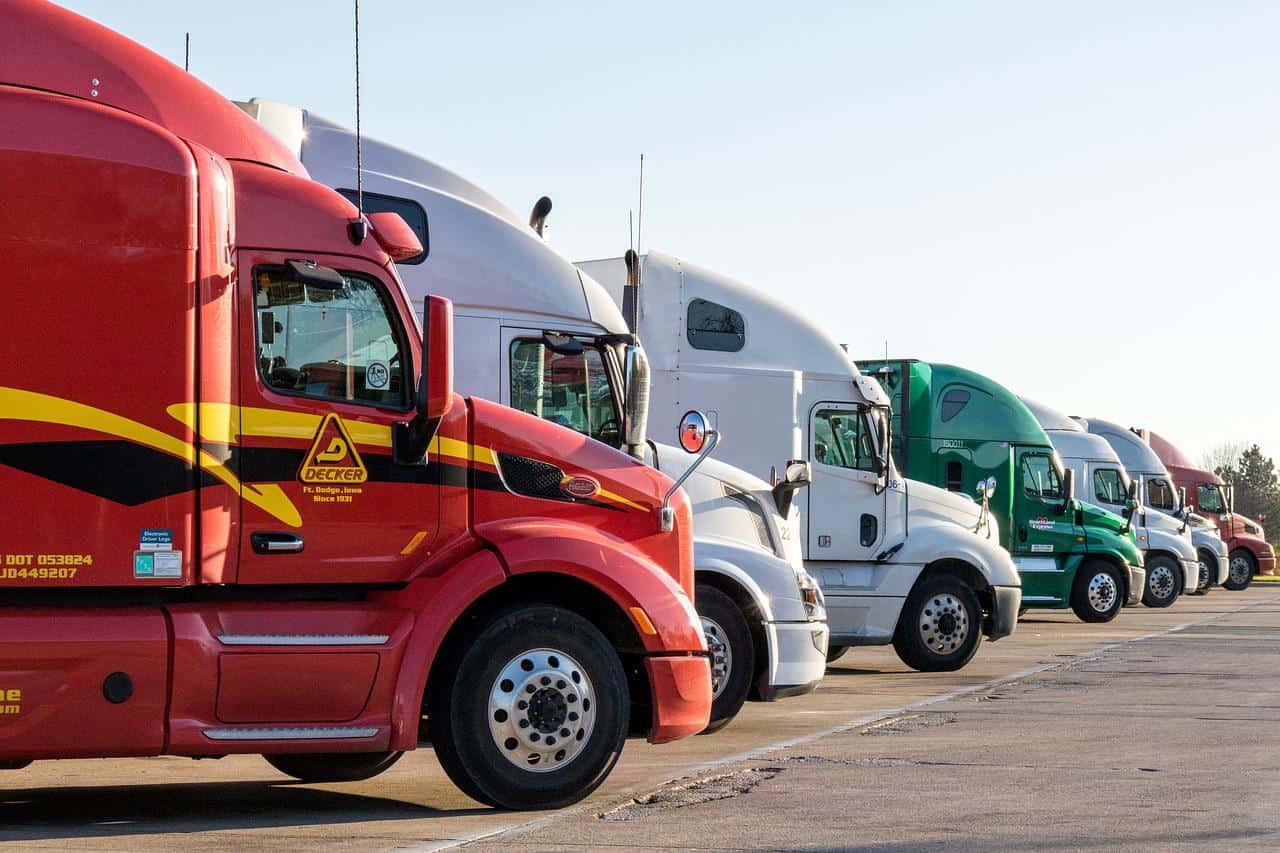Also known as over-the-road trucking, OTR trucking is an industry with very high demand as of late. Without it, many aspects of life as we know it would not be able to exist.
As such, there are ample opportunities for capable truckers in the OTR world. However, before sending in applications to work in the OTR trucking industry, it is important to know just how OTR works and all that OTR entails.
How Does OTR Trucking Work?
OTR trucking, which stands for over-the-road trucking, is just another way of defining long haul trucking. In other words, as a trucker, OTR trucking means you can spend long periods of time on the road, which can lead to you being away from home for weeks.
Many OTR truckers travel from coast to coast. This is in comparison to local and regional drivers who are home every night. However, working as an OTR trucker has its own perks, namely the fact that you will have longer periods off at home between your long trips.
Requirements for OTR Trucking Jobs
Similar to nearly every other type of trucking job out there, there are some requirements that coincide with being an OTR driver.
Class A CDL
The Class A CDL is the best license you can obtain as a trucker because it makes it possible for you to drive so many different types of vehicles. With a Class A CDL, you can drive any combination of vehicles over a combined weight of 26,001 pounds.
Also with a Class A CDL, the towed vehicle can be over 10,000 pounds as well. With this license, you can drive the majority of vehicles that are in Class B and Class C as well as tractor trailers, tankers, livestock carriers, flatbeds, and a few other options.
Class B CDL
Class B vehicles are not as common for OTR truckers to get on their own, but a Class B CDL is still good to have. They’re used to operate any vehicle that isn’t hitched to a trailer.
It also encompasses vehicles that are towing trailers as long as it does not exceed a GVWR of 10,000 pounds. This could be any sort of bus, box truck, or even a dump truck. With a Class B license, you can operate Class C vehicles that do not require additional endorsements.
Class C CDL
You will very rarely find any OTR trucking job that only requires a Class C CDL. This is due to the fact that Class C CDLs only permit drivers to operate vehicles with 16 passengers or fewer as well as small HAZMAT vehicles.
Therefore, if you are going for a CDL, it is better to pursue a Class B CDL at the very least, if not a Class A CDL. This is because a Class A CDL allows you to legally operate a wider range of vehicles, which could lead to better opportunities for you within the OTR industry.
Special Endorsement
Getting the right CDL for you is important, but there will always be instances that require even more additional endorsements. For example, as a driver, you’ll be required to obtain special endorsements for the transportation of hazardous materials.
Hazardous materials typically include gasoline, propane, acetylene, and basically anything explosive, flammable, or dangerous. Endorsements like the one for the transportation of hazardous materials ensure that you know how to properly and safely transport the materials that you are hauling.
OTR Trucking Salary
Due to the extended period of time that you’ll be on the road, you can expect to receive a salary that matches your efforts. In the OTR industry, OTR truckers typically receive a median salary of around $64,000 per year, which breaks down to around $5,000 per month.
However, on the lower end of the OTR trucker spectrum, you’ll often see entry-level salaries closer to $44,000 per year. However, entry-level salaries can climb as high as $94,000 on the high end. This does not reflect the opportunities for bonuses within the business.
Example of Over the Road Trucking
When doing a run for OTR trucking, you can expect to be gone for anywhere from 3 to 4 weeks at a time. During those 3 to 4 weeks, you’ll often complete one or more deliveries. You can also expect to visit different parts of the U.S. during your travels, sometimes even driving from one coast to the other.
The distance will fully depend on the demands and the needs of your employer as well as the delivery options that are available. You will normally pick up your delivery, and then pick up another shipment near the same location as the drop-off location.
Advantages of Over the Road Trucking
Despite the heavy workload and the long periods spent on the road as an OTR trucker, there are many perks to working in the OTR trucking industry as a driver.
Higher Pay
Due to the high level of skill that is required of OTR truckers, as well as the high demand and the long hours, over-the-road trucking is one of the best paid trucking jobs you can get. The average yearly salary is higher than most, and that is true all over the country.
The main parts of the U.S. that pay the best rates for OTR drivers are currently the midwest and the western portions of the US. The same is true of New England.
Opportunity to Travel
Due to the distance that you will be expected to travel, you’ll have the opportunity to see a lot of different parts of the country. You might even take a trip to Canada or Mexico every once in a while, though it will depend on your company.
No matter what, there is a lot of beauty to be seen on the roads throughout the U.S. When your job pays you to drive through those places, it is hard to be upset.
Job Security
With the current and ongoing supply chain issues, OTR truckers and truckers in general are in high demand. This means that as long as you can complete your jobs, there is no chance that you will not have work. Also, with America being the consumption-based market that it is, there will always be a major need for OTR drivers.
No Loading or Unloading Freight
As an OTR driver, you’ll be spending countless hours on the road as you go from destination to destination. As an OTR trucker, you won’t have to handle any of the loading or unloading processes for the cargo you’ll be carrying, no matter what the cargo may be.
In fact, cargo handlers take care of loading and unloading at both ends of the trip. All you have to worry about is getting cargo from point A to point B!
Challenges of Over the Road Trucking
As with every job, there are some drawbacks and challenges associated with being an OTR driver.
ELDs Can Disrupt Driver Schedules
While electronic logging devices can be great and are known to help both local and regional truckers, the HOS regulations that come with ELDs make it difficult for OTR truckers to work steadily while on the road. HOS regulations state that a driver can only drive for 11 hours straight.
The same regulations say that drivers need 10 hours of off-duty time in between as well. This, mixed with other rules that must be logged in an ELD, can create difficulty for drivers who are trying to transport a delivery to its final destination.
Detention Hours Can Lower Earning Potential
In the trucking business, detention can lead to severe consequences. Detention is the term for trucker delays, whether at the pickup location or even on the road. This can cause issues down the line when it comes to maintaining a schedule.
Poor Infrastructure
There are many ways by which poor infrastructure can affect the trucking community. Within companies themselves, a lack of impressive leadership and a failure to plan the routes for truckers well can cause issues in the supply chain.
In turn, drivers could face long periods of no work as a result. However, that is just what happens within a private business. Overall, in the U.S. or any country for that matter, a lack of a solid infrastructure can lead to issues on the roads and poor regulations for drivers.
All of these possibilities could even make it challenging for companies to function within the country and create job opportunities for drivers. These types of issues can lead to unnecessarily high-stress levels and a lack of work during certain seasons.
Time Away From Home
For inexperienced truckers, the mental side of being on the road all of the time can result in significant stress. Not being able to stay home with family for weeks on end and having to spend time in familiar surroundings can be difficult for some people. It could lead to unwanted stress because it’s not easy to spend multiple weeks away from home.
Cost and Expenses
As a truck driver who’s on the road a lot, you will have to pay certain expenses that may not be normal when working from home. There are some cabs that allow for a small living space in which you can sometimes cook, but you will not have the same opportunities as you would when working locally. While working as an on-the-road driver, you should expect to see a rise in expenses related to gas, food, and drinks.
OTR Trucking vs Regional and Local Trucking
With all of this information, you should have a good understanding of just what a OTR trucker truly is. But here is a better understanding of just what other roles truckers hold.
Regional Trucking
Regional trucking is only based in a portion of the country, usually within 1,000 miles. However, regional trucking can be similar to OTR in that both can lead to drivers being on the road for multiple days at a time.
However, these long driving times are still shorter for regional truckers when compared to OTR truckers. As such, as a regional trucker, one of the biggest appeals is that you can expect to have weekends off as a regional trucker and be able to be home and with your family.
Local Trucking
Local trucking is very different from both regional and OTR trucking. As a local trucker, you would be home every night, and on average, you’d be working within a 200-mile radius.
While local trucking comes with its own challenges, such as driving on fewer highways and far more back roads, local trucking does offer a steady schedule with more time off.
OTR Opportunities For All
OTR trucking is a vital piece of the American infrastructure. Without it all production and consumption would grind to a halt as grocery stores would have empty shelves, factories would have no new supplies and so much more. The vital need for trucker drivers is now obvious, and opportunities are plentiful.
FAQ
As long as you can handle the time on the road and away from home, OTR is one of the highest paid trucking jobs in the industry.
OTR is paid higher than local drivers make on average.
OTR drivers can expect to be home once every 3 weeks.



